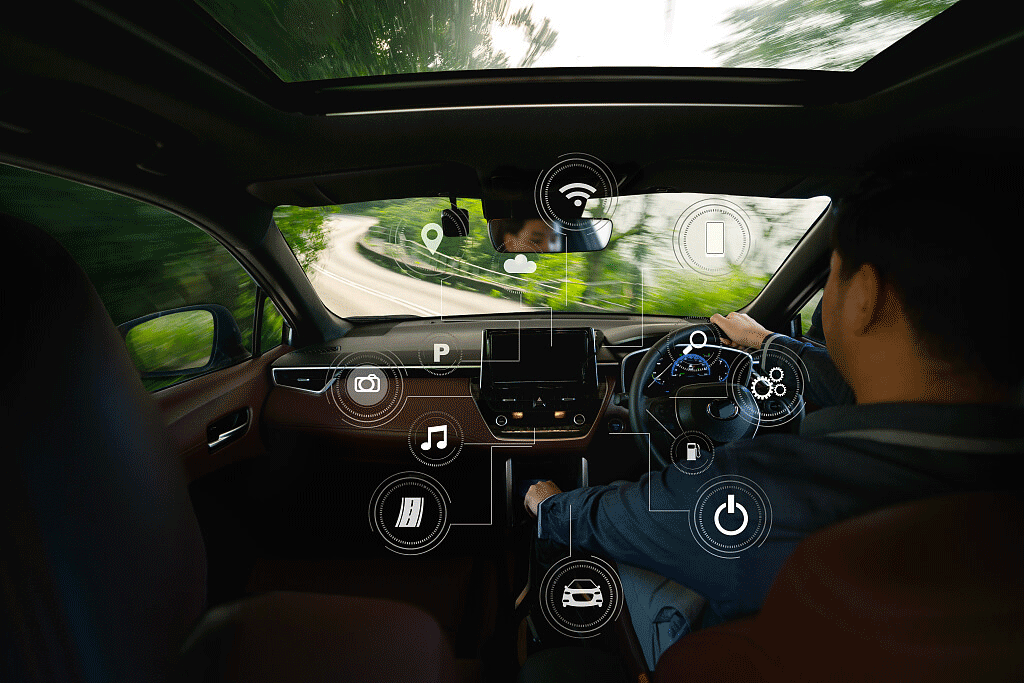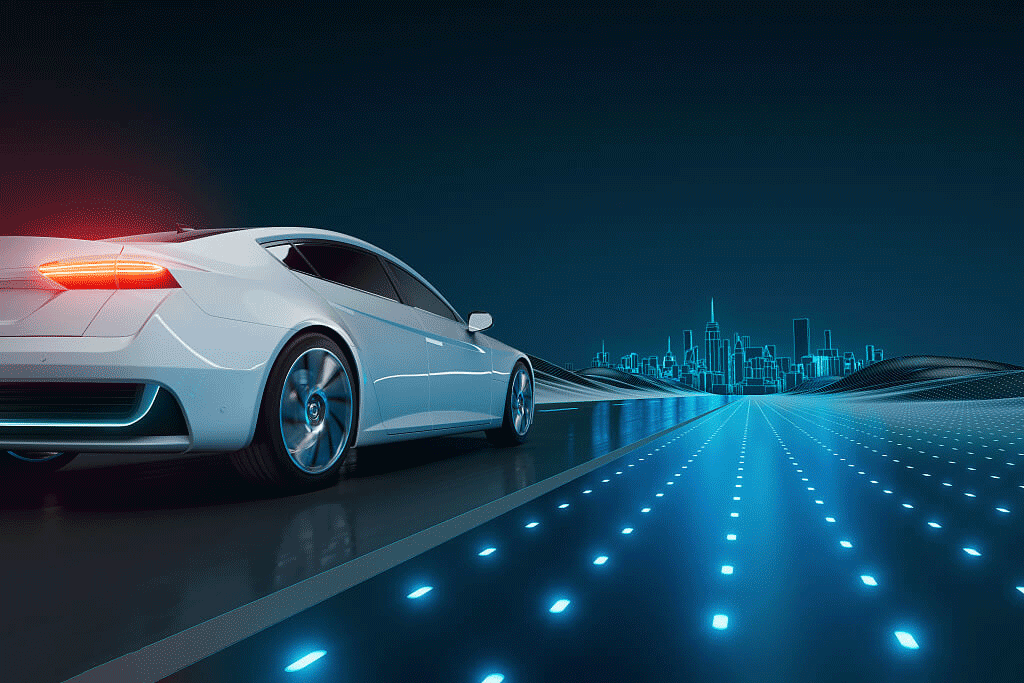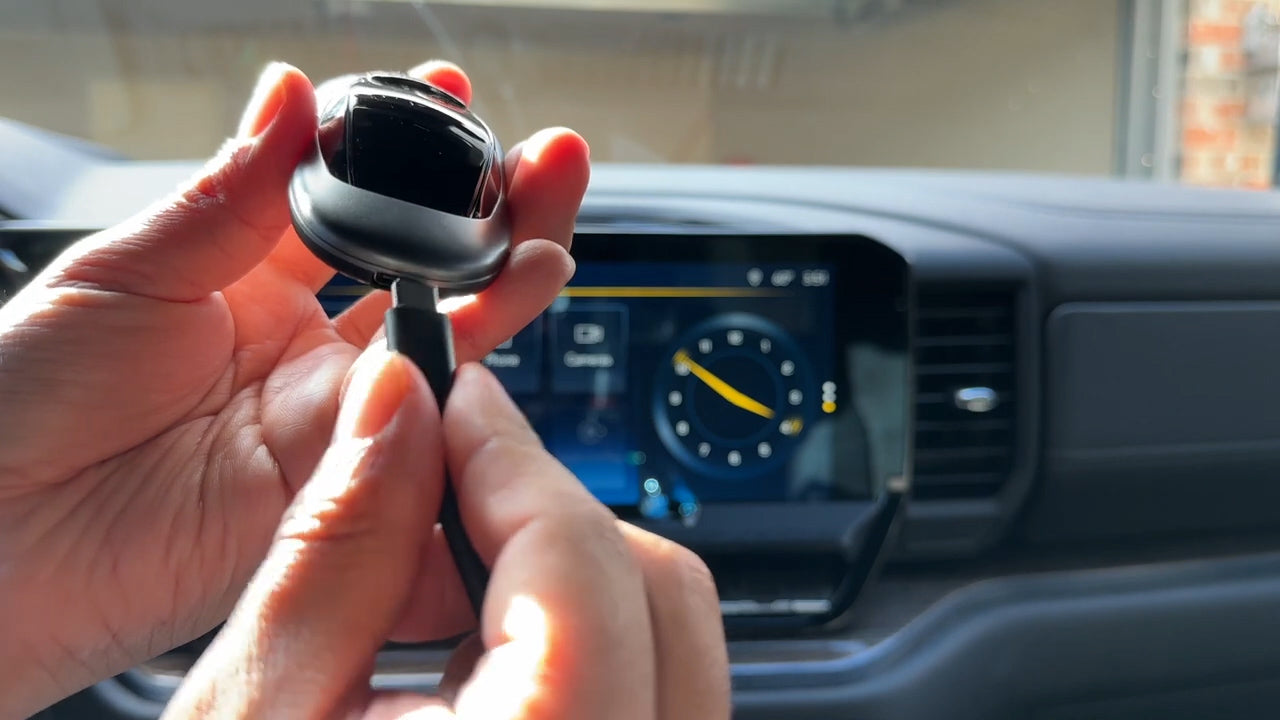Deep Integration of In-Car Entertainment and Vehicle Functionality
Entertainment systems are becoming more closely intertwined with vehicle diagnostics, energy management, and other core functions
Modern in-car entertainment systems are undergoing a revolutionary transformation. They're no longer just about providing entertainment; they're deeply integrating with core vehicle functions like diagnostics and energy management. This integration offers drivers unprecedented convenience and insights.
Responding to user needs, today's in-car entertainment systems have not only improved in functionality but have also effectively merged with the car's core systems. This revolutionary change expands the once-singular entertainment function into critical areas such as vehicle diagnostics and energy management. Through this deep integration, drivers can enjoy high-quality entertainment experiences while simultaneously monitoring their vehicle's health and energy performance in real-time.
This transformation brings significant convenience and in-depth insights to drivers, allowing them to better understand their vehicle's condition and energy performance. For instance, the in-car system can provide real-time diagnostic information, alerting drivers to potential issues before they become serious problems. At the same time, energy management features help drivers optimize their driving behavior, improving fuel efficiency or battery range.
Looking ahead, as technology continues to advance, in-car entertainment systems will likely incorporate even more information and details, further enhancing their functionality and user experience. This revolutionary shift not only improves driving convenience and safety but also paves the way for the development of smarter vehicles.
Modern in-car entertainment systems are undergoing a revolutionary transformation, deeply integrating with core vehicle functions to provide drivers with unprecedented convenience and insights. Through a unified user interface, drivers can easily access critical information and control multiple functions:
- Real-time Vehicle Status: The system provides instant updates on various vehicle parameters, such as remote start status and remaining runtime.
- Fuel Efficiency Monitoring: Drivers can track and calculate actual fuel economy, understanding how driving habits impact fuel consumption. This helps optimize driving behavior and improve fuel efficiency.
- Battery Charge Management: For electric and hybrid vehicles, the system displays real-time battery levels, helping drivers better plan their journeys.
- Smart Maintenance Reminders: Based on vehicle usage and manufacturer recommendations, the system promptly reminds drivers of periodic maintenance needs, such as oil changes and tire rotations.
- Potential Problem Prediction: By analyzing vehicle data, the system can identify potential mechanical issues, such as brake system abnormalities, acceleration problems, or vibrations, providing early warnings to prevent more serious malfunctions.
- Data Analysis and Reporting: The system can generate detailed usage reports, helping drivers understand vehicle performance trends and costs.
This integration not only enhances vehicle reliability and safety but also provides drivers with comprehensive insights into their vehicle's health. Through timely maintenance and problem prevention, it effectively extends vehicle lifespan, reduces unexpected breakdowns, optimizes fuel efficiency, and lowers operating costs.
Moreover, the integration of these features makes the driving experience more intelligent and personalized, meeting modern drivers' needs for convenience and information transparency. As technology continues to advance, we can anticipate future in-car systems offering even more precise and comprehensive vehicle management solutions.

Modern in-car entertainment systems have made significant advancements in energy management, providing drivers with comprehensive energy optimization solutions. These innovative features not only enhance vehicle efficiency but also promote more environmentally friendly driving habits.
The core functions of the system include:
1. Detailed Energy Consumption Analysis:
Real-time monitoring and recording of vehicle energy consumption data
Generating easy-to-understand charts and reports to show energy consumption trends
Comparing energy consumption differences across various routes and driving modes
2. Personalized Optimization Suggestions:
Providing tailored advice based on driving habits, such as acceleration and braking techniques
Recommending optimal speeds and gear choices to achieve the best fuel efficiency
Suggesting when to use eco-mode or turn off unnecessary in-car devices
3. Intelligent Route Planning:
Offering intelligent charging station route planning for electric vehicles
Considering battery range, charging station locations, and charging times to optimize trips
Providing real-time updates on charging station availability and charging speeds
4. Range Anxiety Mitigation:
Accurately predicting remaining driving range by considering road conditions and driving modes
Clearly displaying nearby charging station locations on the dashboard
Offering alternative routes and emergency charging options
5. Eco-Driving Score:
Evaluating the environmental impact of driving behavior and providing scores and improvement suggestions
Setting eco-driving goals to encourage continuous improvement
6. Energy Consumption Forecasting:
Predicting future trip energy consumption based on historical data and current conditions
Helping drivers better plan long-distance trips
Through these features, in-car entertainment systems not only improve vehicle energy efficiency but also foster environmental awareness among drivers. For electric vehicle users, the system effectively reduces range anxiety, making electric travel more convenient and reliable. As technology continues to advance, we can expect future systems to offer even more precise energy management and smarter charging planning, further promoting sustainable transportation development.
This functional integration not only simplifies vehicle operation but also significantly enhances the overall user experience. By seamlessly combining energy management, vehicle diagnostics, and entertainment features, drivers can easily access key information and control multiple functions through a unified interface. The system provides detailed energy consumption analysis and optimization suggestions, helping drivers adopt more environmentally friendly driving practices. For electric vehicles, the system intelligently plans charging station routes, effectively reducing range anxiety.
As technology continues to advance, we can anticipate the emergence of more innovative features, further blurring the lines between entertainment systems and core vehicle functions. This ongoing technological revolution not only improves driving convenience and safety but also lays a solid foundation for the development of future intelligent vehicles.
Enhanced Vehicle Control Functions Through Entertainment System Interface
Modern in-car entertainment systems are undergoing a revolutionary transformation, evolving into multifunctional control centers for vehicles. This evolution significantly enhances driving convenience and overall user experience, transforming the in-car system from a mere entertainment device into the core hub of vehicle functionality.
Key features include:
1. Functional Integration:
Seamless combination of traditional entertainment functions (music, navigation) with vehicle control features
Diverse vehicle operations through a unified interface
2. Extended Control Range:
Climate system adjustment
Seat heating and ventilation control
Window operation
Door lock control
3. Intuitive Operation:
Clean, straightforward touchscreen interface design for quick operation
Voice control functionality for hands-free operation, improving driving safety
4. Personalized Settings:
Saving and switching settings based on different driver preferences
Intelligent learning function, automatically adjusting based on usage habits
5. Remote Control Capabilities:
Vehicle remote control via smartphone applications
Pre-adjusting interior temperature, locking or unlocking doors, etc.
This functional integration not only simplifies vehicle operation processes but also greatly enhances the comfort and convenience of the driving experience. Drivers can easily manage various vehicle functions while focusing on driving. As technology continues to advance, we can expect to see more innovative features emerge, further blurring the lines between entertainment systems and core vehicle functions, propelling the intelligent driving experience to higher levels.
This integrated design makes operations more intuitive and centralized, significantly reducing the risk of driver distraction during the journey. Through touchscreen, voice commands, or gesture control, drivers can easily adjust the in-car environment, ensuring optimal comfort and safety.
Modern in-car entertainment systems not only integrate traditional music and navigation functions but also extend control over multiple vehicle functions such as air conditioning, seat heating, windows, and door locks. This design allows drivers to quickly access and operate various functions through a unified interface, enhancing the convenience of the driving experience.
The touchscreen interface design is clean and straightforward, facilitating quick operation, while voice command and gesture control functions provide hands-free options, further improving driving safety. Through these advanced control methods, drivers can easily manage the in-car environment while maintaining focus on driving, ensuring a comfortable and safe driving experience for every journey.
As technology continues to progress, we can anticipate the emergence of more innovative features, further blurring the boundaries between entertainment systems and core vehicle functions, driving the intelligent driving experience to new heights.
This description emphasizes the advantages of integrated design, including the intuitiveness and centralization of operations, as well as the enhancement of driving convenience and safety through various control methods.
Modern in-car entertainment systems have evolved into comprehensive vehicle information and control centers, significantly enhancing the driving experience and efficiency of vehicle management. These advanced systems not only provide entertainment functions but also integrate critical vehicle status information and personalized settings, creating an intelligent, intuitive, and highly customized driving environment for drivers.

1. Real-time Vehicle Status Monitoring:
Tire Pressure Monitoring: Displays real-time pressure for each tire, promptly reminding drivers to make adjustments, ensuring driving safety.
Fuel Level: Accurately shows remaining fuel, helping drivers plan refueling times reasonably.
Battery Charge: For electric and hybrid vehicles, provides detailed battery charge information, reducing range anxiety.
Other Key Parameters: Such as engine temperature and oil status, helping drivers comprehensively understand vehicle conditions.
2. Intelligent Interface Design:
Personalized Settings: The system can remember different drivers' preferences, including seat position, air conditioning temperature, and audio settings.
Automatic Adjustment: Automatically adjusts the in-car environment based on memorized preferences when drivers switch.
Learning Ability: The system can learn drivers' habits, providing more intelligent suggestions and adjustments.
3. Tailored Driving Experience:
Driving Mode Selection: Offers different driving modes such as sport, comfort, and economy based on personal preferences and road conditions.
Customized Information Display: Drivers can choose to prioritize the information they care most about on the dashboard or central control screen.
Interaction Method Choice: Supports multiple control methods including touch, voice, and gestures, adapting to different drivers' habits.
Through these features, modern in-car entertainment systems not only simplify vehicle operation but also provide an unprecedented personalized experience. Drivers can focus more on driving while easily accessing all necessary information and controls. This intelligent design not only improves driving comfort and convenience but also enhances driving safety through timely status monitoring and reminders. As technology continues to advance, we can expect these systems to become even more intelligent and intuitive, further enhancing the driving experience.
The multifunctional integration of modern in-car entertainment systems is revolutionizing the way we interact with our vehicles, bringing transformative changes to the driving experience. This innovation not only significantly simplifies vehicle operation but also lays a solid foundation for future intelligent driving and autonomous driving technologies.
Core Advantages:
1. Simplified Operation:
Centralized control interface reduces the number of physical buttons and switches drivers need to operate.
Intuitive touchscreens and voice controls make vehicle functions easier to access and manage.
2. Intelligent Integration:
Seamlessly combines entertainment, navigation, vehicle diagnostics, and environmental controls.
Provides comprehensive vehicle status information, such as tire pressure, fuel levels, and battery charge.
3. Personalized Experience:
Supports multi-user configurations, remembering different drivers' preference settings.
Adaptive interface optimizes display content and layout based on usage habits.
4. Enhanced Safety:
Reduces driver distraction by allowing multiple functions to be controlled via voice commands.
Real-time vehicle status monitoring helps identify potential issues promptly.
5. Foundation for Future Technologies:
Provides the necessary human-machine interaction platform for advanced driver assistance systems (ADAS) and autonomous driving technologies.
Supports over-the-air updates, continually adding new features and improving performance.
Looking ahead, in-car entertainment systems will continue to expand their control capabilities, gradually evolving into true in-car intelligent assistants. We can expect to see more innovative features emerge, such as:
Augmented Reality (AR) navigation displays
AI-based personalized recommendations and predictions
Deep integration with smart home and wearable devices
More advanced autonomous driving control interfaces
As technology continues to advance, these systems will play an increasingly important role in enhancing driving safety, efficiency, and comfort, ultimately transforming our modes of transportation. In-car entertainment systems are evolving from mere infotainment centers into the central nervous system of vehicles, paving the way for the era of intelligent mobility.
Modern in-car entertainment systems are going through a big change, turning from simple entertainment gadgets into full-blown control centers for your vehicle. These systems make everything easier by combining smart interfaces and personalized settings. They give you real-time updates on things like tire pressure and fuel levels, and let you customize your driving experience with different modes. You can control everything with touchscreens, voice commands, or even gestures, making it super convenient and safe. As technology keeps advancing, these systems will get even smarter, paving the way for intelligent and self-driving cars, and completely changing how we travel.Click to subscribe to CARLUEX to learn more.
Picture Source: Internet.








コメントを書く
全てのコメントは、掲載前にモデレートされます
このサイトはhCaptchaによって保護されており、hCaptchaプライバシーポリシーおよび利用規約が適用されます。